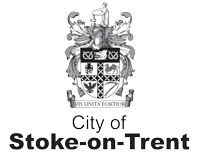Early years provision
Transition Support for Schools
Transition into school for children with Special Educational Needs and Disabilities (SEND) should be carefully planned to ensure that children have the best start to their school life. You will find helpful ideas and examples of good practice below.
Transition meeting
We recommend that schools, settings and parents meet to discuss the transition of children with SEND before they move into school. This allows Parents and setting staff who know the child well to share information such as:
- strengths and needs
- likes and dislikes
- motivators that help to engage the child
- how to help the child calm down if they become dysregulated
- points in the school day that the child may find difficult and what might help
- effective strategies that are already in place
- involvement of other services such as Speech and Language Therapy
Settings should share copies of SEN support plans with the school to show what support has already been put in place and what the impact of the support has been.
Transition visits to school
Children with SEND may benefit from additional visits to the school during the summer term. This will help the child to become familiar with the set up of the classroom and help school staff to get to know that child before they start in September.
Reasonable Adjustments
In line with the Equality Act (2010), schools should consider any reasonable adjustments that they will need to have in place to support the child. These may include:
- arrangements for changing the child’s nappy if they are not yet toilet trained
- alternative snack options for children with restricted diets, including bringing in familiar drinking vessels from home,
- adjustments in the school uniform to support sensory and physical needs around clothing and textures
- staggered start and finish times or alternative entrances to the school building if the child may find the busyness of drop off and collection times difficult
- arrangements for lunch time if the child may find the dining hall overwhelming
- support for sensory needs such as providing fidget tools, chewy tubes for oral stimulation, low stimulation areas, sensory circuits/activities within the room Click here to read a DfE article on reasonable adjustments in schools
Other helpful strategies
- Gather resources that match the child’s level of development and interests ready for September
- Send a photograph book home for Parents and the child to look at over the holidays – this may include pictures of the staff, areas of the classroom such as the toilets, where to hang their coat, the outdoor area etc. You can find some examples here –Example 1 Example 2
- Organise any specialist equipment that the child may need such as specialist chairs
- Prepare visual supports so they are ready to use in September. These may include clear visual timetables and communication boards
Transition Support Visits from EYILS
In order to support a smooth and effective transition for children with additional needs, all schools within Stoke-on-Trent can request a free transition. The visit will be facilitated by a member of the Early Years Inclusive Learning Service.
Visits may focus on some of the following areas and will be linked to the individual needs of the child/children and the school:
- appropriate support strategies and interventions
- classroom layout and organisation that may support the child
- recommended resources and activities
- communication strategies
- observation
- modelling practice
Important points to note:
- Visits are only available for children entering the pre-school, nursery and reception classes.
- Visits are limited to one per school but multiple children may be discussed.
- Schools must complete the transition support request form and return via email to eyils.sp@stoke.gov.uk. On the form, schools must show what reasonable adjustments they have already put in place to support the child and how they are following the graduated approach.
- Visits must be requested before the half term holiday in October.
Please contact EYILS for more information – 01782 231285 or email at:eyils.sp@stoke.gov.uk
